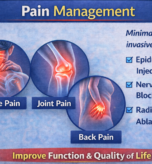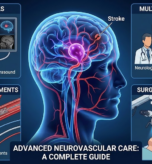The Science Behind Sleep and Cognitive Decline: What You Need to Know

Sleep is often considered a luxury in today’s fast-paced world, but in reality, it is one of the most powerful tools for preserving long-term brain health. Recent studies show that poor sleep is very bad for your brain, and how you sleep today can shape how sharp, focused, and resilient your brain will remain tomorrow. From preventing memory loss to reducing the risk of Alzheimer’s, good sleep is emerging as one of the most effective natural strategies to protect against brain ageing.
🧠 The Connection Between Poor Sleep and Brain Health
Your brain is not “off” when you sleep—it’s actually hard at work. During deep sleep, the brain clears toxins, repairs cells, and strengthens neural connections. According to the National Institute of Health (NIH), sleep plays a critical role in consolidating memory and learning.
- How sleep affects brain health: Adequate rest helps form new memories and improve focus.
- Can sleep prevent memory loss? Yes, consistent good-quality sleep lowers the risk of cognitive decline.
- Sleep and Alzheimer’s risk: Poor sleep has been linked to higher accumulation of beta-amyloid proteins, a hallmark of Alzheimer’s disease.
For detailed insights into overall brain and cognitive care, you can explore resources here.

🌙 Why Poor Sleep Accelerates Brain Ageing
Chronic sleep deprivation and insomnia can do more than make you feel tired. They accelerate the brain’s ageing process.
Effects of poor sleep on the brain:
- Increased risk of dementia and Alzheimer’s disease
- Difficulty in concentration, learning, and memory recall
- Mood disturbances such as anxiety and depression
- Faster decline in overall cognitive performance
The Sleep Foundation highlights that even mild but consistent sleep disruptions can impair memory and reduce the brain’s ability to process new information.
💤 Insomnia (poor sleep) and Its Impact on Cognitive Health
Insomnia is one of the most common sleep disorders affecting millions worldwide. Studies show that chronic insomnia increases the risk of Alzheimer’s disease by nearly 40%. This happens because a lack of deep sleep prevents the brain from clearing toxic proteins effectively.
How to treat insomnia for better brain health:
- Cognitive Behavioural Therapy for Insomnia (CBTI): A proven method to address the root causes of insomnia.
- Medication (when required): Short-term use under medical guidance.
- Lifestyle adjustments: Stress management, exercise, and diet changes.
If you are experiencing long-term sleep problems, seeking medical advice from experts like those at Dr Vrishit Saraswat’s clinic can help address the underlying issues.
🌱 Daily Habits to Protect Your Brain from Ageing
The best part? Protecting your brain with sleep doesn’t require expensive treatments—it’s all about lifestyle changes. Here are science-backed tips:
Tips to improve sleep quality for brain health
- Stick to a consistent schedule: Go to bed and wake up at the same time daily.
- Limit caffeine and alcohol, especially in the evening.
- Reduce screen time: Blue light from devices delays melatonin production.
- Create a sleep-friendly environment: A dark, quiet, and cool bedroom improves sleep.
- Exercise regularly: Physical activity promotes deeper, more restorative sleep.
Best bedtime routine for brain health
- Practice relaxation (deep breathing, meditation, or light reading)
- Avoid heavy meals before bedtime
- Dim the lights an hour before sleep
- Keep devices away from the bed
🌍 External Evidence Supporting Sleep and Ageing
Several global studies emphasise the role of sleep in brain ageing:
- The Alzheimer’s Association reports that disrupted sleep can be an early sign of Alzheimer’s, making prevention crucial.
- A Harvard Health article notes that people who sleep fewer than 6 hours per night consistently show poorer brain function as they age.
- The World Health Organisation (WHO) recognises sleep disorders as an emerging public health issue affecting mental health and brain wellness.
💡 Key Takeaways
- Sleep = Brain Detox: Deep sleep helps remove harmful toxins like beta-amyloid.
- Sleep protects memory: Good rest improves focus, memory storage, and recall.
- Poor sleep = Faster ageing: Insomnia and disrupted sleep increase the risk of cognitive decline.
- Lifestyle matters: Daily habits like proper sleep hygiene, regular exercise, and stress management can safeguard your brain for years to come.
📝 Final Thoughts
Sleep is not a passive state—it is an active, healing process that keeps your brain young and healthy. By making sleep a priority, you’re not only boosting your energy but also protecting your mind from premature ageing, memory loss, and even dementia.
So tonight, treat sleep like medicine. Your brain will thank you for years to come.
For more expert advice on brain health and overall wellness, explore Dr Vrishit Saraswat’s website.
FAQs
❓ Can poor sleep cause brain ageing?
Yes. Poor sleep has been linked to accelerated brain ageing. When you don’t get enough quality rest, your brain cannot effectively clear out toxins like beta-amyloid, a protein associated with Alzheimer’s disease. Over time, this can damage neurons, reduce brain volume, and impair memory, making your brain function as if it were older than it actually is.
❓ Can sleep help prevent accelerated brain ageing
Absolutely. In fact, deep and restorative sleep allows the brain to repair itself, consolidate memories, and strengthen neural connections. Moreover, studies show that people who consistently get 7–9 hours of quality sleep tend to have better cognitive performance. As a result, they also experience slower brain shrinkage and a lower risk of neurodegenerative conditions. In short, good sleep acts as a natural “anti-ageing shield” for your brain.
❓ Can poor sleep lead to dementia?
Yes, chronic poor sleep is strongly associated with a higher risk of dementia. Research suggests that sleep deprivation contributes to the build-up of harmful proteins in the brain and worsens inflammation, both of which are linked to Alzheimer’s and other forms of dementia. While one or two nights of bad sleep may not cause lasting harm, years of poor sleep habits can significantly increase dementia risk.
❓ How old is your brain if you have poor sleep?
If you regularly experience poor sleep, your brain can function as though it is several years older. Some studies suggest that people who consistently sleep fewer than 6 hours per night may have brain structures and cognitive abilities similar to those of individuals 4–7 years older. This means poor sleep can age your brain prematurely, making it harder to focus, remember, and process information.






